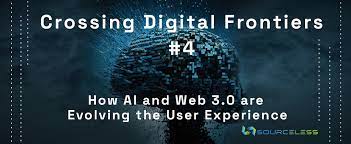Evolving Frontiers AI’s Transformative Influence on Web Browsers

The landscape of web browsing has undergone a paradigm shift, thanks to the transformative influence of Artificial Intelligence (AI). In the realm of digital innovation, the integration of AI technologies within web browsers has propelled user experiences to unprecedented levels of customization, efficiency, and personalization. Prominent web browser examples such as Google Chrome, Mozilla Firefox, Microsoft Edge, and Safari have become dynamic platforms where AI manifests its prowess, revolutionizing functionalities in ways that redefine how users navigate and interact with the vast expanse of the internet.
AI-Powered Evolution of Web Browsers
Web browsers, the gateways to the internet, have ceaselessly evolved, not merely as tools for accessing information but as intelligent companions that adapt to individual user needs. AI’s imprint is most palpable in the enhanced search capabilities embedded within these browsers. Examples abound in algorithms refining search results based on context, relevance, and user intent, as seen in Google Chrome’s predictive search or Firefox’s adaptive search features.
However, the scope of AI’s impact transcends search functionalities. Recommendation systems wielded by browsers analyze user behavior, preferences, and historical data to curate personalized content suggestions. This technology, prominent in Microsoft Edge’s “Collections” and Safari’s suggested reading lists, exemplifies AI’s adeptness at tailoring browsing experiences to users’ unique tastes and interests.
AI’s Role in Security and Performance
The amalgamation of AI into web browsers fortifies the fortress of cybersecurity. Threat detection mechanisms powered by AI, pervasive in browsers such as Chrome and Firefox, bolster defenses against malicious websites, phishing attempts, and malware incursions. By analyzing patterns and anomalies, AI-driven security measures augment users’ online safety.
Moreover, AI contributes significantly to optimizing performance. Predictive algorithms anticipate user actions, preloading content and expediting page load times. Google Chrome’s pre-rendering technology is a prime instance, ensuring swift and seamless browsing experiences through proactive content loading.
Challenges and Ethical Considerations
Yet, amidst AI’s laudable contributions, inherent challenges loom large. Privacy concerns arise as AI-driven browsers collect and analyze vast troves of user data, necessitating stringent protocols to safeguard sensitive information. Algorithmic biases, another pressing issue, underscore the importance of ethical AI development, steering clear of perpetuating discriminatory practices or reinforcing echo chambers.
The trajectory of AI’s influence on web browsers portends a future brimming with innovation and also ensuring your website appears in relevant searches. Voice-enabled interfaces, natural language processing, and augmented reality integration stand as vanguards of forthcoming advancements. Furthermore, AI’s potential to streamline content creation and testing processes heralds a landscape where browsers seamlessly anticipate user needs while fostering a secure and ethical digital milieu.
The Future Nexus of AI and Web Browsers
In conclusion, AI’s assimilation into web browsers heralds a transformative epoch in the digital sphere. While enhancing user experiences and augmenting functionalities, the symbiotic relationship between AI and browsers necessitates a delicate balance between innovation and ethical considerations. As we traverse this evolving terrain, the collaborative synergy between AI and web browsers promises a horizon abounding with endless possibilities, shaping a digital world where intelligence and user-centricity converge harmoniously.


